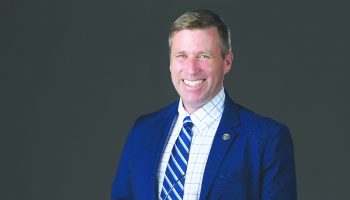 During this week when we are discussing diverse and potentially polarizing issues associated with American identity, some members of our community are wrestling with the issue of identity in America in a very personal way following a troubling experience at the Main Gate entrance Sunday morning. They recounted the experience to me in this way:
During this week when we are discussing diverse and potentially polarizing issues associated with American identity, some members of our community are wrestling with the issue of identity in America in a very personal way following a troubling experience at the Main Gate entrance Sunday morning. They recounted the experience to me in this way:
On Sunday morning at approximately 1 a.m., members of our Chautauqua Theater Company were returning in two
cars from a celebration in Mayville following the successful opening of the production of An Octoroon. As they approached the Main Gate, the first car was pulled over by a County police officer for what was initially reported as “driving without taillights.” The car contained the play’s leading actor, Larry Powell, and three African-American conservatory members. Larry was asked by the officer several times if he had been drinking. He responded each time that he was the designated driver. He was asked about driving only with his running lights on. He communicated he was not aware and quickly demonstrated that the lights were in working order. Despite there not being anything technically wrong with the vehicle, and demonstrating that he was not impaired, he was still asked to step out of the car.
The second car contained only white members of CTC’s leadership and visiting designers. Andrew Borba, CTC’s artistic director, attempted to intervene but was told to return to his car, where he took photographs of the functioning taillights.
The exchange between the officer and Larry seemed to last an eternity. No ticket was written, and the cast returned to their housing on the grounds visibly shaken.
This synopsis of the story doesn’t begin to underscore the trauma that our African-American company members felt as they described being charged for “driving while black.”
I learned of this incident early Sunday morning and, in addition to articulating this understanding of the events, requested this space in the Daily to also reflect on and share our community’s response to date. In addition to talking and listening face-to-face with the company directors Andrew Borba and Sarah Clare Corporandy, I also called our County Executive George Borrello to alert him to the facts as I knew them and asked him to work with me on a broader conversation about diversity and inclusion in Chautauqua County. I also asked for a meeting with the County Sheriff, which will occur this Friday. Both officials were eager to do anything they could to address this issue.
Later Sunday morning, the Rt. Rev. V. Gene Robinson, vice president of religion and senior pastor; Deborah Sunya Moore, vice president of performing and visual arts; the Rev. Dr. Robert M. Franklin Jr., former director of religion; and I met with members of Chautauqua Theater Company, those who were present for the incident and those who had formed family within the company, to hear directly from them what happened and how they experienced it. I later attended the Sunday performance of An Octoroon and shared some of this information and my reactions during the post-performance talkback.
In the context of this week on “American Identity,” and as a result of Sunday’s incident and its aftermath, we have learned a great deal. Certainly, we understand more than ever the critical importance of our conversations and planning on diversity and inclusion; we have learned that — despite good intentions — our community is struggling with issues of diversity and inclusion perhaps more than it may realize. We have learned that our guests of color are being greeted with questions and statements such as, “Why are you here?” or “You must be a performer,” as if they don’t belong here in the first place. We have heard stories from our young artists of diverse backgrounds about not going to particular locations on the grounds unless they are in pairs, and about consistently having people turn their heads back after they have passed to see where they might be going.
We have learned that, while in some cases we represent the very best in human values, in other cases, we fall short of that aspiration.
Larry Powell, in addition to being an accomplished and celebrated actor and playwright, is also a film producer. His film: “Mother’s Milk: A Film Quilt” will be screened at noon Friday, July 6 at the Chautauqua Cinema, followed by a talkback. Admission to the Chautauqua Cinema for this special presentation is free to anyone with a Chautauqua gate pass on a first-come, first-served basis. Concessions will be available for purchase. We are grateful to the Chautauqua Cinema for enabling us to share Larry’s work and host this needed post- film dialogue.
I also hope that Chautauquans will attend our community kick-off of our new Diversity, Equity and Inclusion initiative with the address by Dr. Johnnetta Cole, the only woman to hold the presidency of both of the nation’s historically black women’s colleges — Bennett and Spelman — on July 14.
I admit that for all the times I have asked that Chautauqua Institution turn its “gates into gateways,” this past week has reminded me that while we hope to export all the good we do here out into the world in service to others, that all the ugly of the world cannot always be stopped by those gates themselves. Sometimes the ugly of the world uses our gates as a gateway, too.
At the conclusion of the company meeting we held, one of the actors shared that direct and indirect racism is a way of life for people of color in all communities. What was different, they shared, was that we came to listen and outlined a response to “do something about it.”
The Chautauqua response is one of civil discourse, but it must not stop there. It must also lead to positive, sustained change. We appreciate the commitment of Chautauquans near and far to this ideal and to redoubling and fast-tracking efforts to become a model community for diversity and inclusion transformation.
The major trauma for our actors happened at our gates, but the minor cuts and bruises still continue in too many other areas on our grounds, and in the direct or indirect answers that communicate something less than a full welcome to this sacred place. We cannot decouple our exploration of the best in human values from the big and small actions each time we encounter someone we would put in the category of “the other.” I have much to do to shed the lessons of my own white privilege; all those who have such a privilege do.
But the bigger questions in this week on “American Identity” starts here in our own Chautauqua community. What do we want to be known for, and are we willing to do the work to realize that desire?
We dedicate this work to our young artist and non-artist Chautauquans who have experienced anything less than the best of our humanity — the future of our mission, this sacred community, and the promise of our nation demands nothing less.


